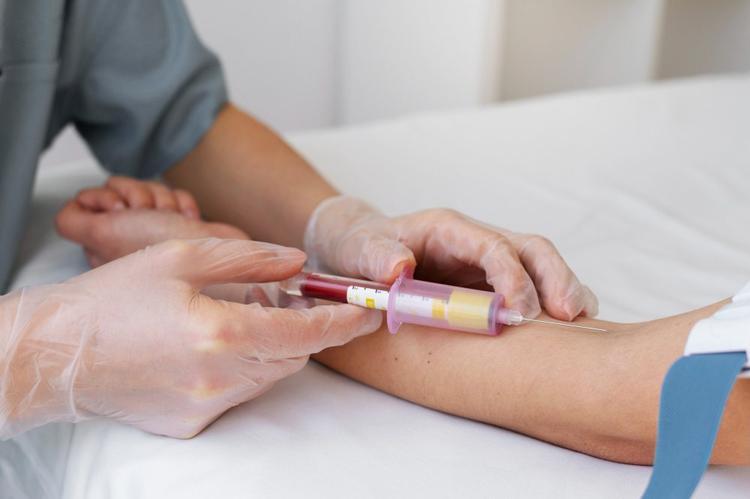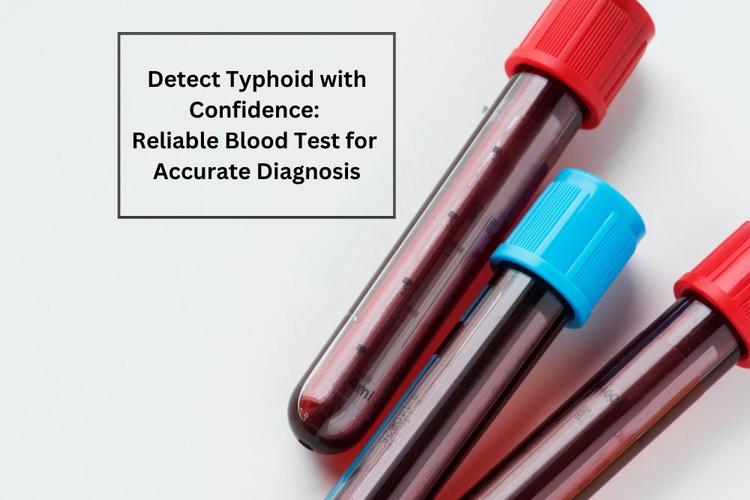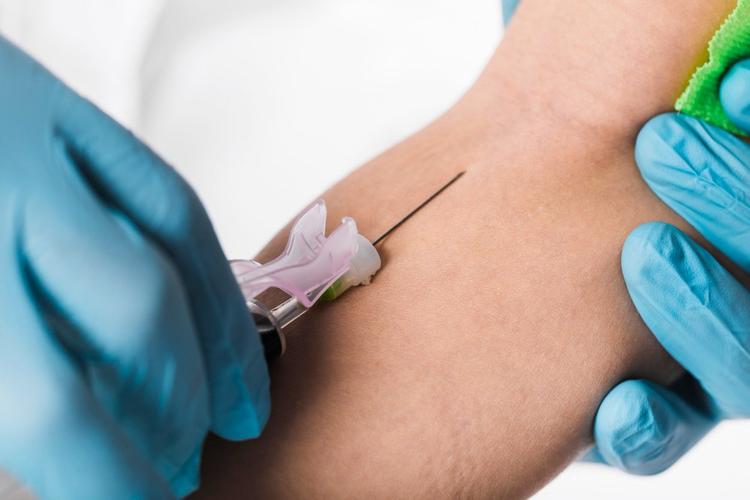Essential Blood Tests For The Second Trimester Of Pregnancy

Medically Reviewed By
Dr. Ragiinii Sharma
Written By Meenakshi
on May 19, 2023
Last Edit Made By Meenakshi
on Mar 14, 2024

As a mother-to-be, ensuring the well-being of the little one growing inside you is a top priority. Luckily, advancements in diagnostics have made it possible to gain a better insight into your baby’s health, assess risks that could harm them, and allow one to take appropriate actions in time. Yes, you read that absolutely right. There are several blood tests available that can help diagnose your baby’s risk of developing chromosomal disabilities and other problems. Throughout your pregnancy, you may be asked to undergo multiple tests, which can feel overwhelming, yet each test is critical for tracking your pregnancy and ensuring everything is fine.
Among all the tests, we have discussed the most important ones recommended by doctors during the second trimester, which is a crucial period in pregnancy where various milestones occur. If you want general information about these tests, you’ve come to the right page. In the blog, we’ll discuss a few crucial blood tests for second trimester that can unlock a world of knowledge about your little one’s development. So, are you ready to dive in? Let’s get started!
Essential Tests During Second Trimester Of Pregnancy:
Glucose Challenge Test:
Also called the GCT Test, the Glucose Challenge Test is suggested during the 24-28 weeks of pregnancy to screen your risks for developing gestational diabetes. Gestational Diabetes is prevalent during pregnancy and occurs when your body fails to effectively regulate blood sugar levels, posing risks for the fetus and mother-to-be. It offers several advantages for both the expectant mother & baby inside the womb.
Pros Of Glucose Challenge Test:
- The Glucose Challenge Blood Test helps screen gestational diabetes at an early or manageable stage.
- The early screening further reduces the risk of complications for both the expectant mother & baby.
- Allow better management of the condition and minimizes chances of excessive fetal growth, birth injuries, and other complications during delivery.
- The test helps keep a tab on the fluctuations in your blood glucose levels, allowing maintain them better for a healthy pregnancy.
- If your blood glucose levels are elevated, you may be asked for additional tests, like glucose tolerance tests, to accumulate a better idea of your condition & prescribed the treatment to manage it accordingly.
- Moreover, women at a high risk of developing gestational diabetes, like one with obesity, a family history of diabetes, a chronic illness, or a history of gestational diabetes, can benefit from this test. It allows doctors to thoroughly monitor your pregnancy, ensuring early detection and intervention if necessary.
However, it is crucial to understand that even if the GCT test is positive, extended evaluation is required to confirm or rule out any risks. Follow all instructions by your healthcare provider and undergo additional tests as suggested. It can minimize the chances of complications for both the baby and mother-to-be.
How’s it done?
During the GCT Test, you will be asked to drink a glucose solution, and after an hour, your blood will be drawn to measure your blood glucose levels. If your levels are not within the normal range, further screening will be recommended to confirm the cause.
Triple Marker Test:
Moving on to another important test during the second trimester of pregnancy, the Triple Marker Test is conducted to assess the risk of your baby being born with chromosomal abnormalities. As the name suggests, the triple marker test measures three maternal blood substances: alpha-fetoprotein (AFP), human chorionic gonadotropin (hCG) & estriol. Additionally, factors such as maternal age and others are considered along with these three markers to estimate the likelihood of your baby developing conditions like Down syndrome, neural tube defects, and other chromosomal abnormalities, if any.
Pros Of Triple Marker Test:
- Also called the triple screen test, the triple marker test helps assess the risk of some chromosomal abnormalities.
- The early screening of the risks allows doctors and parents-to-be to make informed decisions about further testing or intervention options.
- Typically suggested during 15 to 22 weeks of pregnancy, triple screen tests provide initial risk assessment, allowing better management with few complications possible.
It is vital to understand that the triple marker test is indicative and not definitive. If your test results are positive or abnormal, you may be asked for additional testing to confirm the condition. The test results are combined with other factors to estimate the risk of such conditions.
How’s the triple marker test done?
It is a simple blood test that involves drawing blood from a pregnant mother to measure three specific substances: AFP, hCG, and estriol, to assess the risk of a fetus developing birth defects.
Quadruple Marker Test:
Being a crucial parental screening test, Quadruple Marker Test helps determine the risk of specific chromosomal abnormalities & birth defects in the fetus. It is often used interchangeably with the triple marker test, yet the extended version of the later ones. It measures four substances: Alpha-fetoprotein, Human chorionic gonadotropin, estriol & inhibin in the maternal blood to provide better insight into the pregnant mother & unborn baby’s health.
Pros Of Quadruple Marker Test:
- Quadruple Marker Test provides better information & accuracy in assessing risks for fetal chromosomal abnormalities than a triple screening test.
- Suggested during the second trimester of the pregnancy, the Quadruple Marker Test help assess risks & allow expectant parents to make informed decisions.
- Allow early intervention for the betterment of the unborn baby & mother-to-be while helping minimize complications to a possible extent.
If the test results are positive, it doesn’t always mean your baby will have chromosomal abnormalities. It is not a definitive test and can only assess your risks, and further examination or evaluation is necessary or suggested for diagnosis or confirmation.
How’s the Quadruple Marker Test done?
It requires a sample of maternal blood to measure the levels of four substances, including AFP, hCG, Estriol & Inhibin, to determine the health of the fetus & assess its risk of developing chromosomal abnormalities or birth defects. The results, combined with other factors, are used to determine such risks and allow doctors to suggest further testing or treatment.
Conclusion:
To conclude, undergoing regular blood tests during the second trimester of pregnancy is essential for ensuring the healthy development of your pregnancy. Each test holds its significance in analyzing your risks and allows for early intervention and management to minimize complications to the best possible extent. Therefore, it is crucial to promptly complete the recommended screening tests to ensure the health of the mother and the baby.
If you are looking for a diagnostic partner for parental screening tests, Redcliffe Labs is the platform you can count on. Whether you want to book a Glucose Challenge Test, Triple Screening Test, Quadruple Marker Test, or any other blood test for the second trimester, we are the destination for you to be. We offer comprehensive tests at competitive rates and prioritize timely diagnosis, recognizing its importance for a healthy pregnancy.



